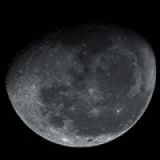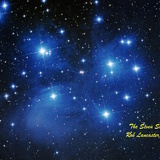INDI Library v2.0.7 is Released (01 Apr 2024)
Bi-monthly release with minor bug fixes and improvements
New Internal Solver for Mac, Windows, and Linux -- Testing/ Experiments needed
- Andrew Burwell
-

- Offline
- Platinum Member
-

- Posts: 527
- Thank you received: 139
Replied by Andrew Burwell on topic New Internal Solver for Mac, Windows, and Linux -- Testing/ Experiments needed
Yes, that's exactly what we're looking at. For some reason certain solvers show lots of error, around 800-2000, while others only show 50 or so. You can see it in the screenshot of the thread I linked. We're trying to uncover why this is happening with certain solvers. So I was just curious if you could report the error in the table results so we can see if any of the built in solvers for KStars show this issue.
Please Log in or Create an account to join the conversation.
- Rob Lancaster
-
 Topic Author
Topic Author
- Offline
- Supernova Explorer
-

- Posts: 2877
- Thank you received: 812
Replied by Rob Lancaster on topic New Internal Solver for Mac, Windows, and Linux -- Testing/ Experiments needed
Please Log in or Create an account to join the conversation.
- Richard Beck
-

- Offline
- Elite Member
-

- Posts: 185
- Thank you received: 28
Replied by Richard Beck on topic New Internal Solver for Mac, Windows, and Linux -- Testing/ Experiments needed
I was just shocked at how hot the CPU got. I don't normally see that widget while platesolving as part of a session. Of course, heat builds up a bit more with multiple trials back to back than it would in normal service where the shortest time between solves would be the slew and settle time when slewing to target after solving.
I can look at the multiple options. I just wanted to get you the default results. I can take that on in another session (which I may do on the desktop with liquid cooling instead of the NUC).
Please Log in or Create an account to join the conversation.
- Rob Lancaster
-
 Topic Author
Topic Author
- Offline
- Supernova Explorer
-

- Posts: 2877
- Thank you received: 812
Replied by Rob Lancaster on topic New Internal Solver for Mac, Windows, and Linux -- Testing/ Experiments needed
Ok I implemented this along with a couple of other changes. If you are using the Linux version you can rebuild after a git pull. If you are using Windows or Mac, I will need to rebuild it in a new version release first
Please Log in or Create an account to join the conversation.
- Rob Lancaster
-
 Topic Author
Topic Author
- Offline
- Supernova Explorer
-

- Posts: 2877
- Thank you received: 812
Replied by Rob Lancaster on topic New Internal Solver for Mac, Windows, and Linux -- Testing/ Experiments needed
I added a check for the amount of RAM on the system before allowing it to proceed to use astrometry with the inParallel option. Please see if this can resolve this problem.
Please Log in or Create an account to join the conversation.
- Richard Beck
-

- Offline
- Elite Member
-

- Posts: 185
- Thank you received: 28
Replied by Richard Beck on topic New Internal Solver for Mac, Windows, and Linux -- Testing/ Experiments needed
I ran several additional targets, typically running all solvers through all options. The typical order would be default, downsample2, small sized stars, mid sized stars and big sized stars. The csv file is attached. Any missing options should be assumed to be failed solves (although there could be the odd missed option).
The last image was run through the solvers 5 times for the default options. The results indicate that the single runs should be reasonably representative of the time required.
These were run on my PixInsight desktop, Intel i7-9700K, 64 GB RAM, liquid cooled.
Please Log in or Create an account to join the conversation.
Replied by han on topic New Internal Solver for Mac, Windows, and Linux -- Testing/ Experiments needed
Rob, you have done a fantastic job by making Astrometry.net working without external programs.
I briefly have played with the Windows executable. I noted that the solving time of the internal solver and ASTAP are very comparable. Furthermore it work very well for very ultra short exposures. As a last test I tried large offset in the header position. For that I changed the declination in the FITS header. There seems a maximum search field limit of 15 degrees in place. For a 15 degrees error in the header the internal solver takes about 22 seconds to solve. ASTAP will solve in 6 seconds.
Two of my test files:
ufile.io/ow361q1p
Not so important, but I could not get the classic Astrometry.net working ("All sky plate solver" for MS Windows). The slash versus back slash is understandable but the .exe extension seems wrong:
Default settings:
C:/Users/h/AppData/Local/cygwin_ansvr/etc/astrometry/backend.cfg
C:/Users/h/AppData/Local/cygwin_ansvr/lib/astrometry/bin/solve-field.exe
C:/Users/h/AppData/Local/cygwin_ansvr/lib/astrometry/bin/wcsinfo.exe
p.s. I suggest you select a more neutral name for the application. Especially for users which share a computer.
Han
author of the ASTAP program
Please Log in or Create an account to join the conversation.
Replied by han on topic New Internal Solver for Mac, Windows, and Linux -- Testing/ Experiments needed
Han
Please Log in or Create an account to join the conversation.
- Peter Sütterlin
-

- Offline
- Supernova Explorer
-

- Posts: 1009
- Thank you received: 133
Replied by Peter Sütterlin on topic New Internal Solver for Mac, Windows, and Linux -- Testing/ Experiments needed
Please Log in or Create an account to join the conversation.
Replied by han on topic New Internal Solver for Mac, Windows, and Linux -- Testing/ Experiments needed
There is fundamental difference between Astrometry.net and ASTAP with respect to the index and database. The ASTAP database contains only the star positions and the unused magnitude. The star database is sorted on magnitude so extracting the 500 brightest star easy. The Astrometry.net indexes contains already build quads.
I experimented with the Sexysolver Library tester "Cut Bright" and "Sat. Limit" settings but quickly the solving fails. If I set "Cut bright" at 50%, it detects half amount of stars but solving fails. Is this selection working correctly? For proper separation an accurate star flux measurement is required.
Note that for developing and debugging ASTAP the image viewer was essential. It allows in debug mode to plot the extracted stars and database stars.
Han
Please Log in or Create an account to join the conversation.
Replied by han on topic New Internal Solver for Mac, Windows, and Linux -- Testing/ Experiments needed
Would a selection on a number of stars rather then % not be more efficient? For short exposures you don't want to throw away stars but for star rich images you want. So I would like to set a limiting number of stars.
With the setting CutDim=85% equals 500 stars of the original 3600, the solving speed is three times faster for large offsets.
Han
Please Log in or Create an account to join the conversation.
Replied by han on topic New Internal Solver for Mac, Windows, and Linux -- Testing/ Experiments needed
ufile.io/toia92ls
Han
Please Log in or Create an account to join the conversation.
